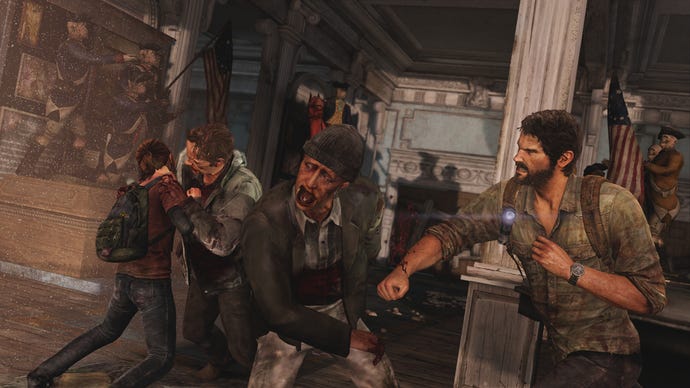USgamer Community Question: Which Game do you Think Deserves a Perfect Rating?
Do you believe there's such a thing as a perfect game? If so, what is it?
This article first appeared on USgamer, a partner publication of VG247. Some content, such as this article, has been migrated to VG247 for posterity after USgamer's closure - but it has not been edited or further vetted by the VG247 team.
Over the years, there's been endless debate about whether or not games deserve a perfect review score. Some say that it should be impossible for a game to achieve a flawless score, since no game is truly perfect. Others feel that certain games represent milestones in terms of design and execution, and fully deserve the highest possible rating.
However you stand on the issue, this week we're asking you to nominate just one game that you believe deserves a perfect - or as close to a perfect score as possible. What is that game and why do you think it deserves such a high rating? That's what we want to know.
While you think about which game it is that represents perfection in your eyes, here's what the USgamer team has picked as their "most perfect" games.
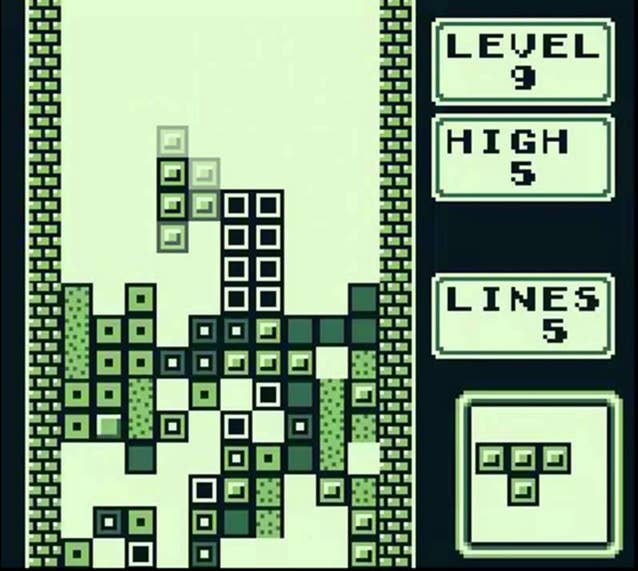
Mike Williams, Associate Editor
This was hard, but when I really sat down to think about it, the most perfect game I've ever played was Tetris on the original Game Boy. I'm sure others will have more powerful, more emotional, or more complex games - I'm partial to titles like Final Fantasy Tactics and SSX 3 myself - but the most pure, perfect experience I've ever played was Tetris.
The Game Boy was an amazing system for its time. I remember sitting there on long car rides with my Game Boy, Game Boy Light, and pack of batteries. Sure, I played games like Gargoyle's Quest, Operation C, Metroid II, and Super Mario Land, but there was one title I always went back to. Tetris was the best, folks. Many of us spend hours in backseats, on couches, and in libraries, rocking the Game Boy's best puzzle game.
How many people still remember that Tetris theme? I know I do. Most of us know the theme without even realizing what song it is. (Krobeiniki, a 19th century Russian folk song.) Tetris scales for anyone. You can have fun playing it as a novice and it scales for expert-level players. And everyone knows friggin' Tetris. Pick a platform and you can play some Tetris.
Sure, you can point to games that have an existent narrative or more complex mechanics than Tetris, but ?Alexey Pajitnov's puzzle title has one of the best flow states of any game. You may prefer certain versions more. You may have different play styles. You may even jam with one of the many offshoots more. But perfection? Tetris owns that title.
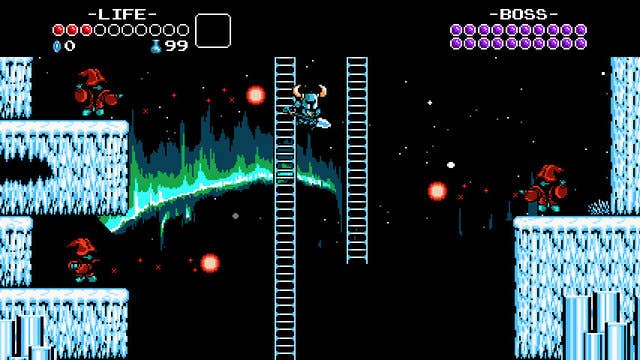
Kat Bailey, Senior Editor
This is actually a pretty easy question for me. Last year I played maybe the only game that I'd consider "perfect." That game is Shovel Knight, which in retrospect should have been my game of the year (I picked Dragon Age: Inquisition, which was also very good, but has already faded from my memory somewhat).
I've already written a lot about Shovel Knight, but I'll do my best to sum it up in a few sentences. It has wonderful art, with characters that have already become gaming icons. It has a fabulous soundtrack. And as 8-bit platformers go, it feels great, though your mileage may vary on Shovel Knight's heavy jumps (I think they're fine).
But of course, its real genius is in the way that it plays with platformer design tropes, weaves in modern concepts like the ability to dynamically set your own difficulty by destroying checkpoints, and tells a genuinely affecting story.
If you'll forgive the apples to oranges comparison, Shovel Knight floored me in much the same way as Mad Max: Fury Road. Both do their share to redefine their respective genres, with subtlety, visual creativity, and extreme attention to detail being the order of the day. They are Exhibit A and B of how tight design can elevate a piece of art.
In any case, if someone asks me for me definition of a game that deserves a perfect score, I'll point them to Shovel Knight. A year after its release, I appreciate it more than ever.
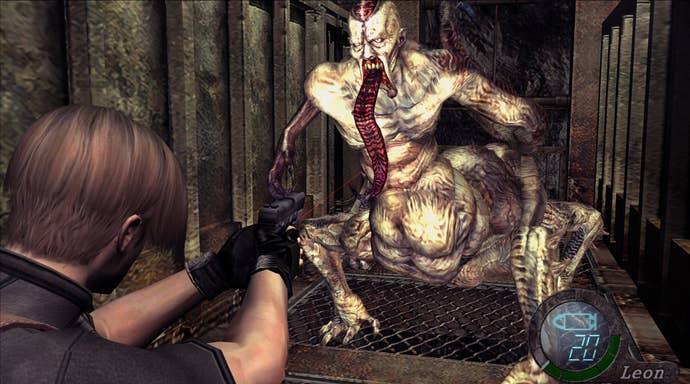
Bob Mackey, Senior Writer
If given enough time, I could whip up a list of my top ten most beloved games, though few of these would actually be perfect. Even personal favorites like EarthBound, Um Jammer Lammy, and Majora's Mask make minor mistakes that somehow don't manage to disrupt the surrounding greatness. So, it's astounding when a game manages to tear through the finish line without a single rough spot to speak of; offhand, I can only think of a handful. And since choosing the "most perfect" of these would be an incredible struggle, I'm going with my gut and giving 2005's Resident Evil 4 the honor.
I've already written plenty on why Resident Evil 4 is so superlative, but if you'd like the capsule version, here goes. Essentially, the reason Resident Evil 4 reached such a state of perfection can be chalked up to how much time and how many second chances its development cycle saw. Capcom needed Resident Evil to reinvent itself, so work on the game essentially restarted three times, with much of the scrapped remnants finding their way into other games. The result of all this time and effort resulted in an experience with almost too many ideas--and, because of this, a sequel the Resident Evil series won't likely top anytime soon.
While I can--and have--written thousands of words on Resident Evil 4, I'll quickly sum up its finer points for the sake of brevity. Its combat offers plenty of options, with the environments factoring heavily into every enemy encounter; and even if you can't move and shoot, it's a deliberate choice all of the action is built around. Each chapter drops you into an entirely new setting with a new cast of characters, from spooky villages to abandoned castles to creepy underground labs. The levels offer plenty of incentives for exploration, without being too big or convoluted to cause tedium or confusion. And Resident Evil 4's reactive difficulty really makes the experience complete: you're somehow always prepared, but also on the brink of running out of everything--which brings a great deal of tension while still empowering the player.
Over the years, I've been a little reluctant to give Shinji Mikami all the credit for Resident Evil 4's greatness. Take a look at the credits, and you'll see several key members of the development team now hold impressive titles at Platinum Games--in case you were wondering why their stuff is so good. Regardless, it's a game that's held up incredibly well, and every time I return to it, I can't divert my attention until I reach the very end. Hm, I should probably get around to playing The Evil Within one of these days...
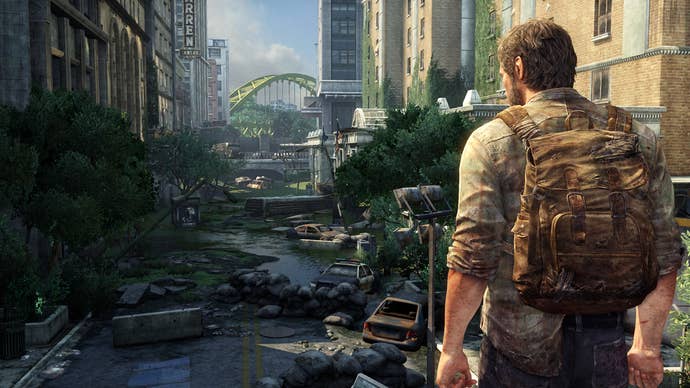
Bill Lavoy, Guides Guru
There are a few games on my radar as possibly deserving a perfect score besides The Last of Us. Grand Theft Auto V, The Witcher 3, Dishonored and This War of Mine off the top of my head, and not because they are flawless. I’ve yet to play a game that was completely bug free, so I’m not sure that you can give a perfect score based on that. When I start thinking about whether a game deserves a perfect score, it has more to do with how much better it is than the rest of the pack. Scores of eight and nine out of 10 are common enough that I think a perfect score is about acknowledging a title as better than the rest.
The Last of Us had bugs and mechanics that bothered me, but the story is still one of my favorites of all time. In fact, it’s probably my favorite, and I doubt I’m alone there. I have played through that campaign several times on both PS3 and PS4, and I have watched more than one YouTube personality play through it just so I could enjoy it from a different perspective. For me, the journey that Joel and Ellie go through (both in the physical world and emotionally) is unmatched by anything else that I’ve ever played. Just thinking about it right now has me wanting to fire up a New Game+.
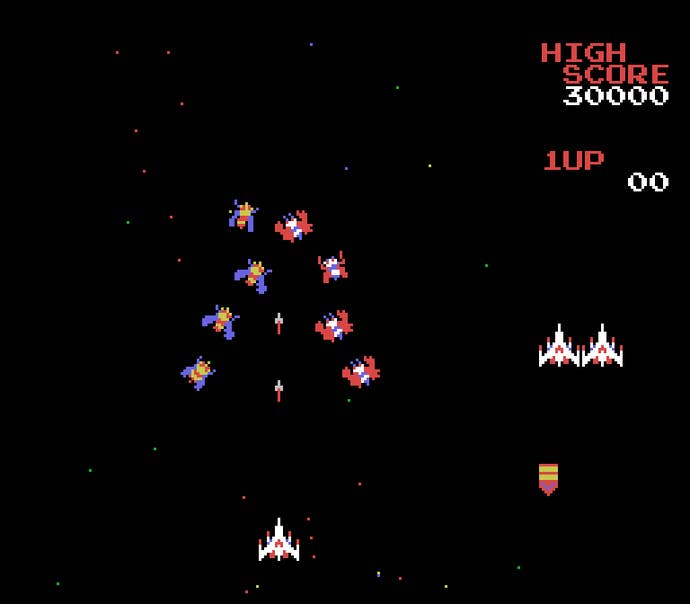
Jeremy Parish, Editor-in-Chief
My first impulse here was to write Super Metroid, but that's what you expected me to do, I know it. So I'll throw in a curveball and name a game I don't write about much but play every time I come across it — which is pretty frequently given its permanence as an arcade fixture — Namco's Galaga.
Galaga's a much simpler game than something like Super Metroid, but that's part of what makes it so good! Galaga doesn't do much, but it handles everything in its tool box with aplomb. There is nothing about Galaga that could be improved or refined, as numerous Galaga sequels have demonstrated. You can make it flashier or add alternate bonus stages, but you can't change the fundamental design of Galaga without destroying the perfect, precarious balance its creators struck upon.
Galaga sits at a perfect tipping point between the too-basic minimalism of Space Invaders and the overly elaborate excess of subsequent shooters. The mechanics work perfectly — invaders swoop into formation in rows, creating graceful arcs through space before taking up their proper rank and breaking free to dive bomb the player. Between the missiles they fire and the limited but effective patterns they can travel, the alien insects keep players on their toes at all times. There's not that much happening on the screen at once, but alien actions overlap and can fill the screen with some fairly distracting patterns (along with an element of randomness), and the end result is just right: Lively but not overwhelming.
And to top it off, Galaga adds a key tactical question to the mix: Do you allow the alien leaders to capture your fire and gang-press it into their ranks, or avoid the tractor beam altogether? The up side to being captured is that you can recapture your lost ship and double your firepower. The down side is that you lose a life, and a double-wide fighter formation has twice the firepower but also twice the footprint, making you far more vulnerable to attack.
Galaga perfected the shoot-em-up. I've long held to the claim that there's no such thing as a perfect rating for a game, but that's just because Galaga came along much too soon for me to review it. It is, truly, flawless.
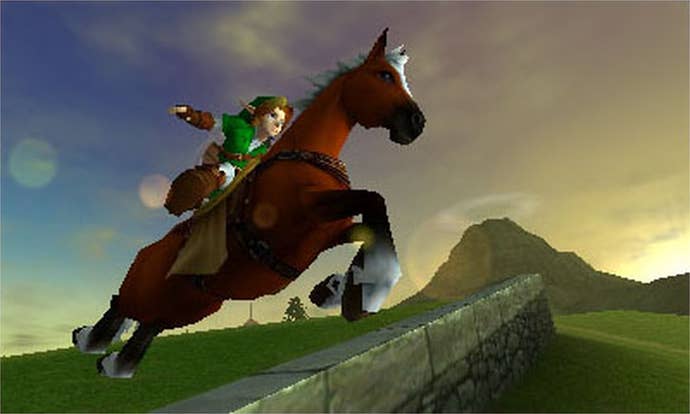
Jaz Rignall, Editor-at-Large
This is a tricky question. I've given plenty of games five out of five - but I don't really think a five-star system offers sufficient granularity to qualify as delivering a "perfect" score. Bump the rating up to a 10-point scale and only a few games to me deserve full marks. Go the whole hog with a 100-point scale, as I've done with certain magazines I've worked on in the past, and there's no way I'd ever give anything a perfect score.
So let me talk about games that deserve a 10/10. And there's just three of them as far as I'm concerned.
The game that immediately springs to mind is Super Metroid. It's just so incredibly well designed, with a progression that seems to be almost scientifically calculated to maximize the wonder of exploration. I absolutely loved playing it, from its frantic and highly unusual intro to the way that you find and use items that enable you to slowly work your way through the game. It's a slice of pure gaming genius. There is one part of the game that is a little tricky - where you have to wall-jump your way up a vertical shaft - but that's the only part of the game I can criticize as feeling a little bit too fiddly. And even then, it's only a minor criticism. It just felt a tiny bit clumsy compared to the superbly designed mechanics of the rest of the game. But other than that, Super Metroid is pure class through and through.
Another game that I think represents near-perfection is Super Mario World. Yeah, I'm citing another Super Nintendo game, but I think SMW is the finest platform game ever made. The way its mechanics are learned, the game's difficulty curve, and the increasing sophistication of its levels are a case study in classic video game crafting.
The final game I'd give a 10 to is Legend of Zelda: Ocarina of Time. Like the other two games I've mentioned, it has a fantastic way of easing you into the game with tutorials that don't really feel like tutorials - just you playing the game naturally. Retrospectively, the introduction feels a little on the slow side, but once the game gets going, it's simply riveting stuff. There are so many clever mechanics and design touches in the game - many of which have gone on to become industry standards. It also packs a brilliant story, and some great puzzles that can be tricky to solve, but never seem cheap or harsh. Ocarina of Time is one of the few games I've rushed home to play on consecutive nights - and it definitely sits high on my all-time favorites list.
I've ended up cheating a bit for this question, but I simply can't choose between these three games in terms of score. They all deserve a perfect 10 from me, and if I was rating them out of 100, they'd fall a few points short of a century (indeed I scored Super Mario World 98% when I reviewed it in Mean Machines magazine back in 1992). Oh, and if you haven't played any one of these three games, it should go without saying that you really need to add them to your gaming bucket list.
